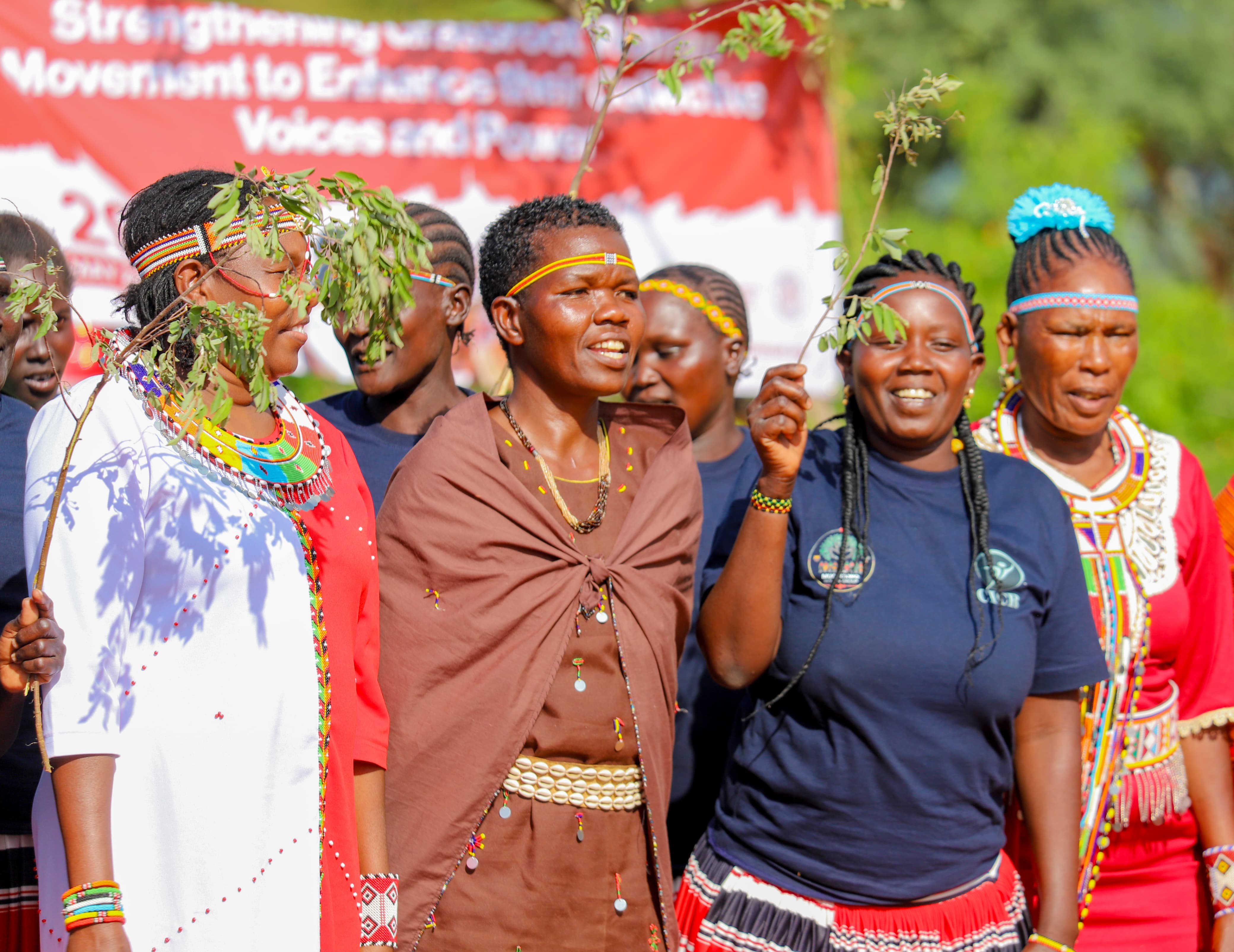
 Samburu Women Trust executive director Jane Meriwas, Mary Komen from Sengwer community flanked by women from Centre for Indigenous Child Rights in Kacheliba on May 30, 2025
Samburu Women Trust executive director Jane Meriwas, Mary Komen from Sengwer community flanked by women from Centre for Indigenous Child Rights in Kacheliba on May 30, 2025
Speaking during an empowerment forum in Kacheliba, West Pokot county, Samburu Women Trust executive director Jane Meriwas said the community in the area will continue to miss opportunities brought about by devolution, if children are not educated.
“Devolution brought government close to the people. With that there are opportunities that come with that such as jobs. Those jobs need people with certain education qualifications. If you don’t have those people, where do you think that human resource will come from? It will be from outside as your people keep suffering,” Meriwas said.
Meriwas noted that the Pokot must deliberately take their children to school and that only then will be the community, alongside other pastoralist groups, will be liberated.
Illiteracy levels in West Pokot stand at staggering 67 per cent according to statistics provided by the Kenya National Bureau of Statistics.
This has been cited as among the contributing factors to insecurity and banditry in the region.
Meriwas added that indigenous and pastoralist communities need to come together and defend their interests, amidst increased challenges that they face.
She also regretted that despite the pastoralist communities having good lands, their migratory way of life means they don’t derive maximum benefit from the land. She noted that despite pastoralism being a huge economic activity for the commiunioties, it had brough problems to the communities due to conflicts. In this regard, she advised that communities diversify to other economic activities such as farming and bee keeping.
Meriwas spoke during a visitation for the Centre for Indigenous Child Rights in Pokot under the theme “Strengthening Grassroot Women Movement to Enhance Collective Voices and Power”.
CICR executive director Evelyn Prech said illiteracy levels were still high in the region, and that poverty and over-dependence are still a huge challenge. Lack of access to healthcare for both women and children remains a challenge, too, she said.
Prech, however, noted that through her organization, they have made interventions to ensure children go to school.
She said she was happy that in the area, 13 students secured university slots, and eight of them were from the groups her organization is supporting.
She also noted that she is supporting some women groups to ensure the community diversifies its economic activities to farming.
“We are having programmes in which we have assisted women engage in vegetable farming, poultry farming and beekeeping. Now we have a programme in which we are assisting women groups engage in mango farming,” Prech said.

![[PHOTOS] Ruto inspects his Naivasha farm](/_next/image?url=https%3A%2F%2Fcdn.radioafrica.digital%2Fimage%2F2025%2F06%2F72a14e8a-a040-48e1-87b3-597dbca6d7c6.jpeg&w=3840&q=100)









